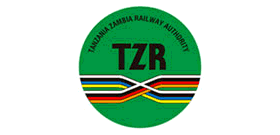 TAZARA Tragedy Underscores Urgent Need for Rail Safety Upgrades
TAZARA Tragedy Underscores Urgent Need for Rail Safety Upgrades
A recent train accident on the Tanzania-Zambia Railway (TAZARA) has sent shockwaves through the African travel industry, highlighting the critical need for enhanced safety measures and infrastructure investment in the region’s rail networks. The incident, a collision during a rescue operation, tragically claimed the life of a TAZARA employee and injured 30 others, underscoring the fragility of the aging railway system.
The accident occurred on June 11, 2025, near Mununga and Kalonje in Zambia. A rescue train, dispatched to assist a derailed passenger coach, collided with the very coach it was attempting to salvage. This devastating sequence of events resulted in the death of Mr. Davy Siwale, a TAZARA employee, and left 30 individuals injured, comprising both passengers and staff. While the injured have since been treated and discharged, the emotional toll and the loss of life remain a stark reminder of the inherent risks associated with outdated infrastructure.
TAZARA management, under the leadership of Mr. Kambani Ndhlovu, Regional General Manager for Zambia, has expressed profound regret over the incident and pledged full support to the victims and their families. A thorough investigation is underway to determine the precise cause of the accident and implement necessary preventative measures. This incident has brought the railway's safety record into sharp focus, prompting calls for urgent action to modernize the system and prevent future tragedies.
The TAZARA railway, a vital 1,860-kilometer link between Dar es Salaam, Tanzania, and Kapiri Mposhi, Zambia, has a long and complex history. Built with Chinese assistance in the 1970s, it was intended to provide landlocked Zambia with an alternative export route for its copper and other goods, bypassing routes through then-apartheid-ruled South Africa. The railway has played a crucial role in regional trade and integration, but it has also been plagued by operational challenges and safety concerns due to aging infrastructure and underinvestment.
This recent accident is not an isolated incident. In April 2025, two locomotive drivers were killed in a derailment in Tanzania. These tragedies underscore a pattern of safety lapses that demand immediate attention. While TAZARA has historically transported millions of passengers and tons of freight annually, its safety record has been a persistent concern, impacting its reliability and efficiency.
The incident has sparked renewed discussions about the future of rail transport in East Africa. The region is currently undergoing a period of significant infrastructure development, with several countries investing in modern standard-gauge railways. However, the TAZARA line, with its aging meter-gauge track and outdated signaling systems, remains a vulnerable link in the regional network. This accident serves as a stark reminder of the urgent need to prioritize safety upgrades and modernization efforts to ensure the long-term viability and safety of the TAZARA railway.
The tragedy also highlights the broader challenges facing railway safety across East Africa. While regional frameworks and protocols exist, their implementation and enforcement remain inconsistent. There is a growing consensus that a more comprehensive and coordinated approach is needed, involving stricter regulatory oversight, enhanced safety management systems, and increased investment in staff training and emergency preparedness.
The economic impact of the accident is also significant. The TAZARA line is a crucial artery for trade and passenger transport, and any disruption to its operations has ripple effects throughout the region. The accident is likely to further erode confidence in the railway's reliability, potentially diverting traffic to alternative, and often more expensive, transport modes. This underscores the importance of swift action to restore service and implement long-term solutions to address safety concerns and improve the railway's overall performance.
The TAZARA train accident serves as a wake-up call for the African travel industry. It highlights the urgent need for a renewed focus on railway safety, not just on the TAZARA line but across the entire region. Investing in modern infrastructure, implementing robust safety protocols, and fostering a culture of safety are essential steps to prevent future tragedies and ensure the sustainable development of East Africa's rail transport network. This incident must serve as a catalyst for change, prompting decisive action to improve safety and restore confidence in this vital transport corridor.
